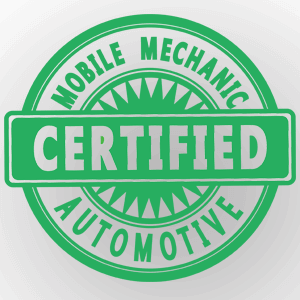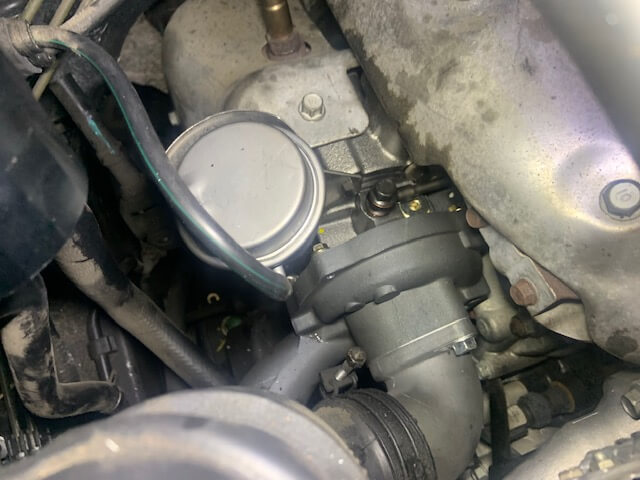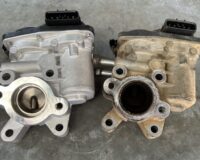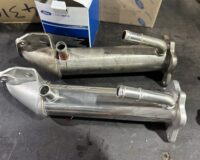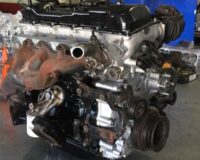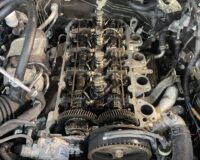The popular Hyundai iload van with the 2.5L turbo diesel has a couple problems that we’re seeing increasingly often. Todays example in Burleigh Heads is a prime example – Turbo failure!
The main and often first symptom people are experiencing is the iload turbo failing. This is generally a result of another problem. The turbo in our experience is the last problem in a sequence of events. Let me explain by working from symptom back to the cause.
The turbo fails due to lack of lubrication. This is due to the oil supply pipe blocking with carbon. This pipe is quite narrow and can block relatively easily. So the repair now is a new turbo and a supply pipe. But it does not end there..
Next the sump and oil pick up need the be removed and cleaned. As this is the supply for the oil, all carbon and/or sludge needs to be removed. Now the common reason for the carbon build up is the fuel injector washers leaking. These washers seal between the injector and the combustion chamber. During normal operation these copper washers slowly wear and eventually leak combustion gas, soot, carbon into the crankcase where it mixes with the oil. Also to note, is that vehicle services can have a big part to play in this sludge build up. Engine oil needs to be replaced on time every time. The correct type of engine oil must also be used.
We recommend the injector washers are replaced every 80000-100000KM. These washers are cheap and easily replaced if done before they fail. Once the washers are leaking the repair can be a lot more expensive. The injectors often seize in the head and have to be forcefully removed. This requires the injectors to be replaced.
Please note: This scenario is for the earlier model iloads (up to 2014). Models after 2014 have a different cylinder head, This design does not allow the combustion gas into the crankcase if the seals leak.
This is not the only possible cause for a turbo failure but it is a very common scenario. Another problem we’re seeing is carbon build up in the intake manifold causing havoc with the turbo. Carbon builds up in the intake from 2 sources.
One is the PCV (positive crankcase ventilation) system which is plumbed back into the intake. The crankcase fumes carry oil mist. The mist over time, coats inside the intake system in oil. This build up alone is not good. But when in conjunction with the 2nd problem, the EGR (exhaust gas recirculation) system the problem is compounded. The EGR system is a legal requirement, but an ill thought out process. The EGR redirects exhaust gas back into the intake manifold to be reburnt. This is to aid in pollution control and economy. The problem with this system is that with an intake system coated in oil the exhaust gas (soot and carbon) sticks and builds up. This ‘build up’ will restrict air flow which effects the turbo amongst other issues. Also chunks of carbon can break off, these will go though the turbo impeller. This too can cause damage.
We recommend intake chemical cleaner to be run through the engine at each service. But once the carbon has built up in the intake system, the only real solution is to remove the intake and manually clean out the carbon.
If your Hyundai iload has any of the following symptoms we recommend contacting Certified Automotive today:
- Engine lacking power
- turbo noise has changed. ‘Whining, squealing, grinding’
- Excessive smoke from exhaust
- Oil leaking from intake piping.
- Oil leaking from intercooler
- Oil in exhaust
- Engine light illuminated
- Black residue build up around fuel injectors
Call 1300 457 599 today
